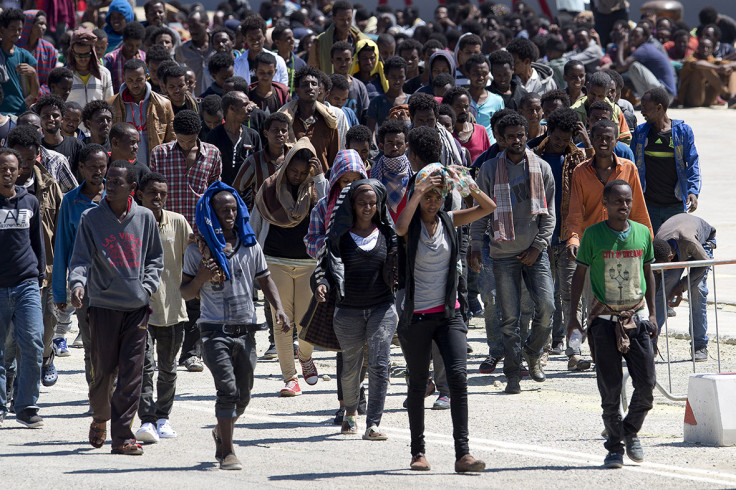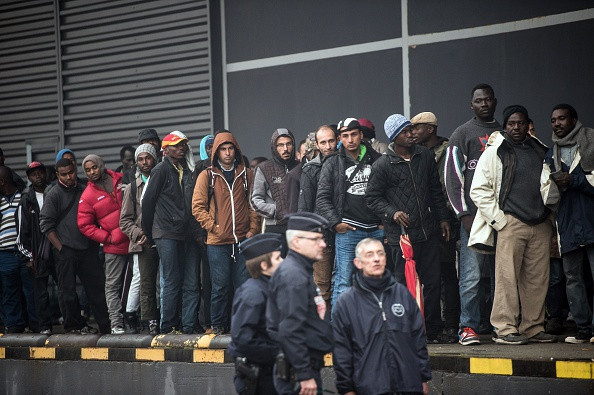David Cameron should stop shaming Britain and let Mediterranean refugees in now

On the fortieth anniversary of the Fall of Saigon a couple of weeks ago IBTimes UK spoke to a 72-year-old Vietnamese refugee, one of the hundreds of thousands that boarded rickety boats and made the perilous journey by sea from Vietnam to flee the Communist government in Hanoi.
Anh Tu Nguyen was picked up by a trawler in the open ocean and taken to Hong Kong, where he and his wife and baby daughter were kept on a prison ship off the coast of the then-British colony. He was told ten days later that the government of Margaret Thatcher had accepted his case for asylum.
Even four decades on Nguyen spoke proudly of that moment, recalling it vividly even when hazy about some of the events so long ago. He is now a leader in Lewisham's 6,000 strong Vietnamese community, where he teaches other refugees English and helps them gain access to housing and other benefits.
I was struck by a sense of pride that Britain had opened its doors to Nguyen and thousands more Vietnamese refugees who, decades later, form such a strong community in London and beyond. In that boat, adrift in the Pacific, Nguyen thought of England as a beacon of hope, a refuge, and Thatcher – that unlikeliest of liberal heroes – came through. This country saved his life.
The conversation came back to me as the news "broke" that Brussels would "force" Britain to accept thousands of refugees under a new plan to address the Mediterranean migrant crisis. It is just the latest of politically-loaded headlines about the migrant crisis and is as patently untrue (Britain has an opt-out clause on such issues) as it is perverse at a time when thousands are dying at sea.
Impeccable timing - @JunckerEU goes to war with new Conservative government over mandatory refugee quotas pic.twitter.com/dhx3DDxGgW
— Bruno Waterfield (@BrunoBrussels) May 10, 2015As perverse, indeed, as the numbers, which reveal that Britain has taken in only a fraction of refugees compared with our European neighbours, many of whom have far greater economic and financial issues than our own. Unemployment in Italy is at 13% and yet the Italians have processed double the asylum applications in 2014 as the UK. Meanwhile, Germany has processed over 200,000 to our 31,000.
This despite the fact that we have played a far greater role in creating the instability that has caused the migrant crisis, both by our action (Libya) and inaction (Syria). Britain has the dubious benefit of a second body of water separating it from the people-trafficking hubs of North Africa, but it is equally the increasingly restrictive policy towards asylum that is keeping refugees away.
That is already having an impact on perception of this country abroad. I had an encounter recently with a Syrian refugee whose status in the Gulf was tenuous at best. He was looking to Europe and I asked him where he would like to go, legal factors notwithstanding – had he considered the UK? Absolutely not, he replied, and cited the rhetoric of Ukip as evidence that Britain was not a welcoming place to be.

The headline that dominated the front page of the Times – claiming that Brussels would force more refugees on Britain – proves that it is not just Ukip that is damaging our image abroad. Senior politicians on all sides are to blame for a twisted and deplorable narrative that presents desperate people as spongers. It is one that is unbefitting of this country and our history.
The question of Britain's role in the EU is important, as is the power that Brussels has over this country and whether it has too much. But that is a political and legal issue that will be addressed in the coming years, not least with a referendum on our membership of the EU. The issue of how many refugees that we take in is a moral issue – it should have nothing to do with politics.
Like the Vietnamese who thought of Britain 40 years ago from unsafe boats in the Pacific, Syrians and others braving desperate journeys from Libya, Turkey and Egypt now look to Britain as a chance for safety and a new life for their families: can we turn them away?
Clearly, we cannot. The message to David Cameron as he puts together a new government is clear: do the right thing. So that 40 years from now a Syrian refugee will speak to a journalist from his home in London and talk with pride about how Britain was a country that took him in when the hour was at its darkest.
© Copyright IBTimes 2025. All rights reserved.






















